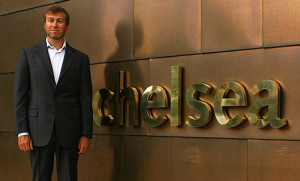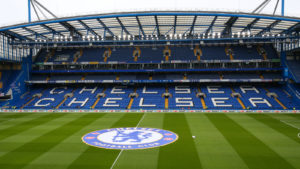Everton FC were docked a whopping 10 points yesterday (which dropped them into the relegation zone) as punishment for breeching the Premier League’s financial rules. Speculation now runs rampant that Manchester City or Chelsea could be next. We’ll focus on City in a future article, because it appears greater scrutiny will be given to Chelsea, given what’s been in the news lately regarding their former owner, Roman Abramovich.
The Russian oligarch and close friend to Vladimir Putin saw his ownership of CFC come to an end after Putin invaded Ukraine, and NATO allied nations then imposed economic sanctions on Russia’s biggest power players and their financial holdings in those countries.
And while the successors to Abramovich, Todd Boehly and Clearlake Capital, are doing what they can to avoid being caught up in this mess, they could still end up paying the price here.
As of now, Abramovich will always be a legend, in the eyes of most Chelsea supporters, because of what he was able to get accomplished on the pitch: five Premier League titles, five FA Cups, three League Cups, two Champions Leagues, two Europa Leagues, two Community Shields, one Super Cup and one Club World Cup.
Before Abramovich arrived, the highlights of the Stamford Bridge trophy cabinet were only just: the First Division title in 1955, the 1971 UEFA Cup Winners’ Cup and three FA Cups between 1970 and 2000.
In it is indisputable that Roman Abramovich completely revolutionized the club, and that he did so by essentially buying his/the club’s way in. It’s also not disputable that a lot, if not most, of that money was acquired in a very shady manner.
One of the main sources of Abramovich’s wealth was the sale of the oil/energy company Sibneft (now a subsidiary of the Gazprom conglomerate, a process that “was easy to rig and was in fact rigged,” according to Jonathan Sumption QC, Abramovich’s representation in the trial against Boris Berezovsky.
Abramovich and Berezovsky co-founded Sibneft together, with the latter (also a Russian oligarch) suing the former for supposed “ill-gotten gains.”
No matter where the money came from, or whatever legal issues Abramovich was facing, most Chelsea fans will overlook all that, because he did genuinely care for the club, was a true, actual fan and he accomplished oh so much.
So never mind, all the white collar crimes he committed, the other corporate crimes he’s been accused of, or the fact that in 1992, he was arrested and sent to prison due to theft of government property.
Also, Switzerland wouldn’t even allow him citizenship.
The latest news, implicating Abramovich in what has been called “a modern slavery” arrangement for acquiring and possessing player contracts while he was in charge of the club, will most likely not change club supporter opinion of him.
Never mind that he used a secretive offshore company to acquire “third-party ownership” of players, in a type of arrangement that has since been banned by FIFA.
That still won’t really change hearts and minds.
What actually will is if Chelsea get hit by a hard sanction, one that is much worse than what Everton received. While it is obviously unfair to punish the Boehly/Clearlake regime for what happened under Abramovich, we’ll see what happens if/when the investigation gets going.
The potential is there, given what we already know about Abramovich, his checkered past and wild spending habits. If Financial Fair Play breeches are found, Chelsea could be docked points and then find themselves in the relegation zone (they’re currently mid-table right now).
If this all leads to the club getting relegated (that’s a very realistic possibility for Everton right now), you would probably see a lot of club supporters turn on Abramovich. If they do get relegated, then struggle for years trying to get back into the top flight, critics and pundits will be blaming Abramovich and his FFP violations for that.
That is the only thing that can tarnish his legacy, a period of bad football that would essentially act as a counterbalance to the glory days.
And right now, there is non-zero chance that doomsday scenario could actually happen.
Paul M. Banks is the owner/manager of The Sports Bank. He’s also the author of “Transatlantic Passage: How the English Premier League Redefined Soccer in America,” and “No, I Can’t Get You Free Tickets: Lessons Learned From a Life in the Sports Media Industry.”
He’s written for numerous publications, including the New York Daily News, Sports Illustrated and the Chicago Tribune. He regularly appears on NTD News and WGN News Now, while writing for the International Baseball Writers Association of America. You can follow the website on Twitter.








